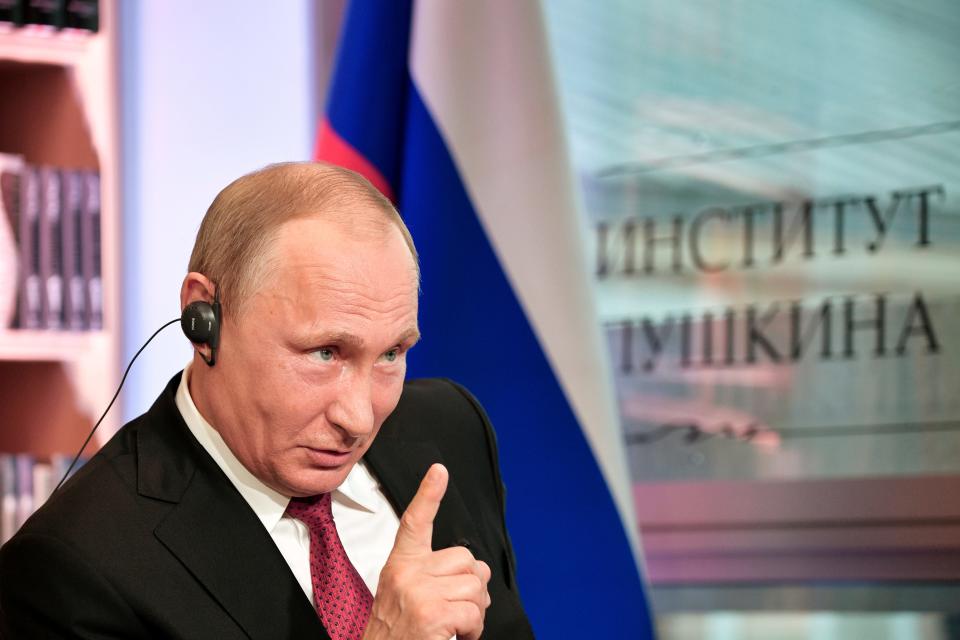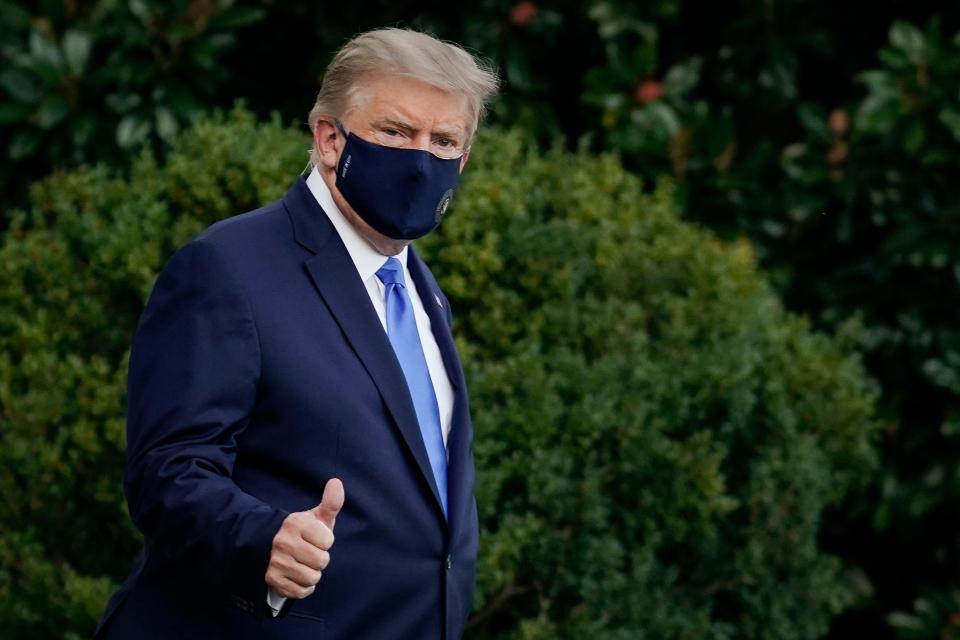Why the Russians may know more about Trump's health and COVID-19 diagnosis than the American public
- Oops!Something went wrong.Please try again later.
WASHINGTON – When President Donald Trump's doctors delivered an update on their patient's COVID-19 status Monday, the American public and scores of reporters were not the only ones hanging on every word.
Russia, China and other foreign adversaries were listening too. And they have almost certainly deployed every tool in their spy kits – from human sources to eavesdropping –to determine how sick the president is and what it means for America's national security posture, according to former intelligence officials and other experts.
"They are looking and watching," said Carol "Rollie" Flynn, a 30-year CIA veteran who is now president of the Foreign Policy Research Institute, a nonpartisan think tank.
White House physician Sean Conley has come under fire for refusing to answer key questions about the president's infection, including what Trump's lung scans show and when he first tested positive for COVID-19.
Trump's advisers, meanwhile, have sought to downplay his infection and portray the commander-in-chief as fully focused on his job.
"We have a government that is steady at the tiller," Robert O'Brien, Trump's national security adviser, said Sunday on CBS' Face the Nation. "He's firmly in command."
But while the American public is relying on Conley and other White House officials to disclose the latest information about Trump's health, the Kremlin may be listening in on private conversations between the president and his outside advisers, as well as conversations among his family members and even his doctors. And with several top Trump staffers working from home after contracting COVID-19 or being exposed to the virus, the White House's communications may be particularly vulnerable, Flynn said.
"I would hope that ... the operational security of his doctors is good, and they're not chatting about his diagnosis on the telephones," Flynn said. "But if they are, it's very likely the Russian may know more than we do."
'Don't be afraid of it': Trump returns to White House after hospitalization for COVID-19

Steven L. Hall, a retired senior CIA leader who oversaw agency operations in former Soviet Union countries, said there is "no doubt" Russian intelligence services have information about Trump's condition.
"There is no doubt they are working to get more. Oh, and the White House is a counterintelligence nightmare," Hall tweeted Saturday when Trump was being treated at Walter Reed National Military Medical Center.
The Trump administration has been criticized in the past for lax security practices, including the president's habit of speaking with friends and outside advisers via unsecured cellphone lines. In one highly publicized incident, Trump's former ambassador to the EU spoke with Trump via cellphone while at a restaurant in Kyiv, Ukraine, where others could overhear the conversation.
"It’s highly likely that (foreign) intelligence services know who the president's friends are that he talks to and are using all means at their disposal to listen in to that," said Peter Feaver, who served on the National Security Council during the George W. Bush administration.
But he said the Kremlin and other foreign governments are also poring through the mountains of open source material on Trump's condition, including the viral video clip of Trump seemingly out of breath after he climbed the White House steps Monday after leaving the hospital.
"I’m sure they were watching the video of the president on the portico and analyzing it frame by frame," said Feaver, now a professor at Duke University. He said Trump's illness is also a problem for American national security officials, whom he fears are distracted by the president's health status.
"This cuts to the very heart of them doing their job," he said. "I think there is a high likelihood that the system is distracted and is not functioning at a high level."
Those concerns were heightened Tuesday, when the Pentagon confirmed that most of the nation's top military leaders were quarantining after coming in contact with a senior officer who has COVID-19. Among those in self-isolation: Gen. Mark Milley, chairman of the Joint Chiefs of Staff, and Air Force Gen. John Hyten, along with service chiefs from the Army, Navy and Air Force.
Feaver and others said the U.S. government's continuity plans are sound, and the military is particularly well-prepared to handle disruptions.
"I think we can have high confidence that the chain of command is unbroken, and while it is stress-tested by these conditions, it’s nowhere close to be being broken," Feaver said.
But he is concerned about the president's focus and the ability of his national security team to keep tabs on global hot spots while the White House is engulfed with this crisis. In addition to Trump and the first lady, about a half-dozen other White House aides have tested positive for COVID-19, along with three Republican senators.
Trump has COVID: Here are administration officials, associates, who have been tested

"We keep hearing about individuals who are testing positive, and hopefully they're going to all fully recover," John Brennan, the former CIA director and Trump critic, told NPR in an interview Monday. "But who else is going to come down with this virus that has responsibilities in the government?"
Amid the disarray, Brennan said, Russia and China may be looking at ways to ratchet up their regional aggression and hoping the U.S. is too consumed with Trump's health to respond.
Feaver agreed that the trajectory of events is disconcerting.
"That doesn’t mean we’re about to be attacked," Feaver said. "But it’s likely that we’re not making optimal moves across the geopolitical chessboard."
More: Trump's COVID-19 diagnosis raises national security concerns
This article originally appeared on USA TODAY: Trump's COVID diagnosis is likely under scrutiny by Russia, other foes

